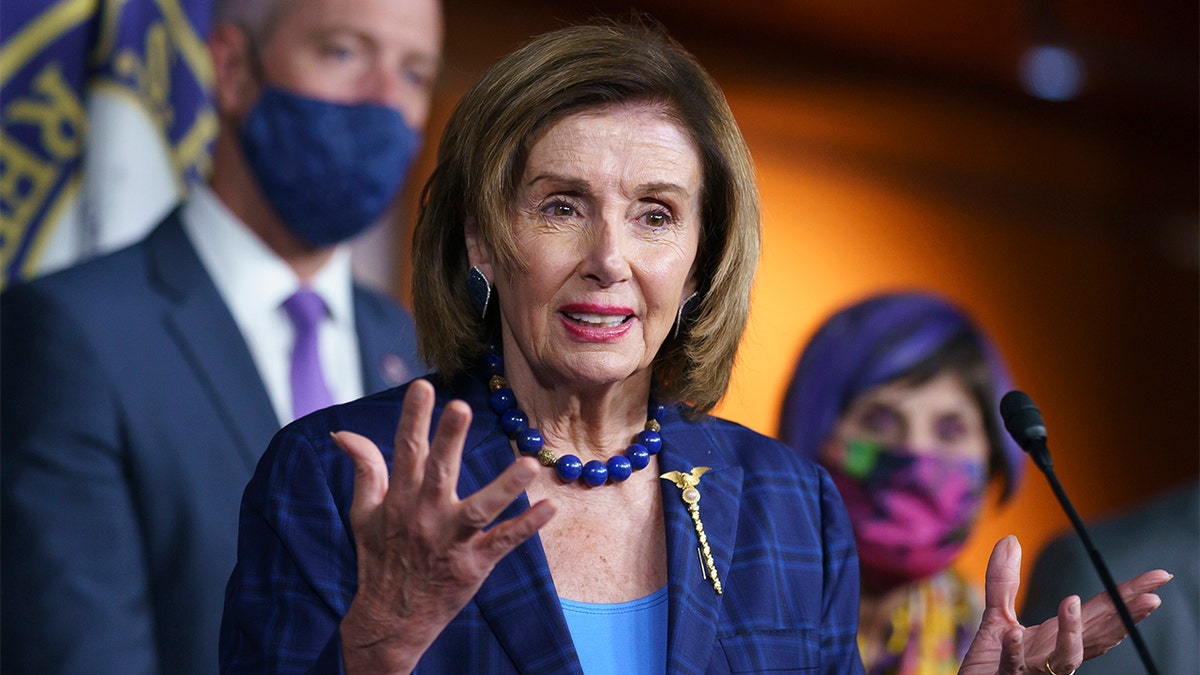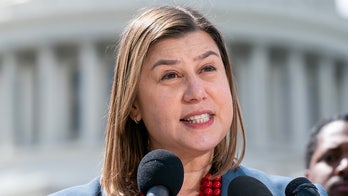Fox News Flash top headlines for August 2
Fox News Flash top headlines are here. Check out what's clicking on Foxnews.com.
Congress has blocked federal dollars from paying for abortion coverage for decades now. But that could change if pro-choice Democrats have their way.
It’s not a surprise that money dictates policy in Washington. Want to understand how a given lawmaker or presidential administration feels about a particular issue? Look to how much money – or little – they devote to a project.
If they spend any money from the federal coffers on a particular program at all.
That’s why the Hyde Amendment has been a part of every government spending bill since 1976, just after the Supreme Court ruling which legalized abortion, Roe v. Wade.
It’s named after late Rep. Henry Hyde. R-Ill. Hyde is known for two things. He chaired the House Judiciary Committee from 1995 to 2001 and was the lead House impeachment manager for President Clinton’s 1999 impeachment trial. He also crafted the Hyde Amendment, barring the government from spending money on abortions.
Few were more ardent pro-lifers in Congress than Henry Hyde.
"It violates your right to be born," said an impassioned Hyde on the House floor during the summer of 1995 about abortion. "Your right to life, which our Declaration (of Independence) says, is a fundamental endowment..it is inalienable, the right to life."
228 GOP LAWMAKERS URDGE SCOTUS TO OVERTURN ROE V. WADE
But the Hyde Amendment also represented a form of Congressional détente. Pro-choice and pro-life lawmakers reached a "deal" in the 1970s. It prohibited the funneling of federal dollars to Medicaid or the Children’s Health Insurance Program for abortion services.

Speaker of the House Nancy Pelosi, D-Calif., and Democratic leaders discuss their legislative agenda, including voting rights, public health, and infrastructure, during a news conference at the Capitol in Washington, Friday, July 30, 2021. (AP Photo/J. Scott Applewhite)
Like most compromises, it was negotiated, as Henry Clay might say, "to hurt." The Hyde Amendment made sure both sides took it on the chin – although both pro-choice and pro-life advocates alike might argue their side absorbed more of an impact than the other. Pro-lifers want to eliminate abortions completely. The Hyde Amendment certainly didn’t do that. A proposal to ban abortion would probably never make it out of the House – even with a Republican majority. That’s to say nothing of overcoming a filibuster in the Senate. Meantime, pro-choice lawmakers thought the Hyde Amendment was unfair for women who rely on health care assistance from the government. The Hyde Amendment impeded that.
"We believe that who you are, where you live, your zip code, your income, should not determine whether you have coverage for the basic part of reproductive health care," said Rachel Fey of The Power to Decide, a group which works to prevent unplanned pregnancies.
However, Democrats have now stricken the Hyde Amendment from the House version of the Labor/HHS appropriations bill. The full House approved a multi-spending bill package late last week to fund the government for fiscal year 2022. That plan included the labor/HHS appropriations bill, sans the Hyde Amendment.
"I am proud that this bill promotes equal treatment for women through increased funding for Title X and by repealing the discriminatory Hyde Amendment," said House Appropriations Committee Chairwoman Rosa DeLauro, D-Conn. "But I do believe repealing the Hyde Amendment is the best thing we can do to support our mothers and families and help prevent, rather than penalize unwanted pregnancies and later, riskier and more costly abortions."
Fey called this a "game changer."
But, upending 45 years of federal policy enraged pro-life Republicans.
"There are non-starters. There are game enders," said Rep. Chuck Fleischmann, R-Tenn., about DeLauro’s maneuver.
"This is a real red line for the Republican Conference," observed Rep. Tom Cole, R-Okla., the top GOPer on the House Appropriations Committee.
House Speaker Nancy Pelosi, D-Calif., tipped her hand on the Hyde Amendment at a December, 2020 press conference.
"Way before I was in Congress the Hyde Amendment was there. I was thinking, ‘How can we get rid of that?’ So it’s long overdue, getting rid of it, in my view," said Pelosi.
She forecast that the Democratic House would craft a bill to torpedo the Hyde Amendment in the coming year.
But the annual appropriations process in Congress is a complicated path. It was historically significant that the Appropriations Committee and full House halted the Hyde Amendment. But then there is the Senate. And, annual spending bills have to clear two rounds of filibusters with 60-vote thresholds each. So despite the House action, few believe that ending the Hyde Amendment will ever survive the Senate.
"We're in the early stages of a long, long budget process," said Sen. Bob Casey, D-Penn., a pro-life Democrat. "I don't make a budget decision based upon one provision."
PELOSI CITES CATHOLIC FAITH WHEN DEFENDING SUPPORT FOR REPEALING ANTI-ABORTION HYDE AMENDMENT
Casey was skeptical that the House language to lift the Hyde Amendment would hold through the remainder of the appropriations cycle. It’s probable the House and Senate will have to do some sort of interim spending bill to avoid a government shutdown at the end of September. Such a Band-Aid bill simply renews all spending at old levels and restores old policy on a temporary basis. That means the Hyde Amendment remains in place. Congress will likely pass an amalgamated spending package for all of the measures later in the fall or winter. Stripping the Hyde Amendment on that mega-bill could be enough to spark a government shutdown on its own. So, pro-choice Democrats are unlikely to go to the mat the over the Hyde Amendment.
"Democrats have learned from recent history that when you have a government shutdown in one-party control, there can be a real cost, not just to the economy and the nation’s standing, but politically," said Doug Heye, a political observer and longtime former House GOP leadership aide. "The White House risking a government shutdown over a provision that is not likely to actually become law is a risk thing for Democrats to do politically."
Politics is often the art of the possible. Democrats have aimed to abolish the Hyde Amendment for decades. But that’s not possible now.
The push by pro-choice lawmakers likely invigorates pro-life activists. Democrats came perhaps the closest they ever have to eliminating the Hyde Amendment. That’s sure to spark them into action to fight future challenges to the Hyde Amendment.
CLICK HERE TO GET THE FOX NEWS APP
And, pro-choice lawmakers can deploy their efforts over the Hyde Amendment for political benefit with their base, too. They can demonstrate to pro-choice voters that they may not have quashed the Hyde Amendment. But they will tell their supporters they inched closer to ending the federal abortion firewall.






